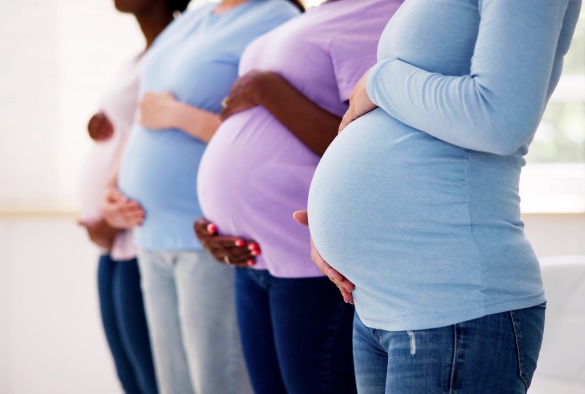Mothers with Poor Mental Health Face 50% Higher Risk of Premature Birth
New NIHR funded work led by researchers at the University of Exeter, King’s College London, the London School of Hygiene and Tropical Medicine and the University of Liverpool has found that women who had at least 1 contact with mental health services in the 7 years prior to their pregnancy were at increased risk of preterm birth.
The study, published in The Lancet Psychiatry, analysed data from more than two million pregnant women, and found that 1 in 10 women who had used mental health services before their pregnancy had a preterm birth, compared to 1 in fifteen in those who had not.
Researchers also found that women who had used mental health services faced a higher risk of giving birth to a baby that was small for its gestational age, increasing from 65 per 1000 births in women who had not used mental health services to 75 per 1000 birth in women who had.
The team conclude that information about contacts with mental healthcare before pregnancy can help identify women at increased risk of negative birth outcomes and who would be most likely to benefit from working with community perinatal mental healthcare teams in coordination with local maternity services.
Senior co-author Professor Louise M Howard OBE, Professor of Women’s Mental Health at King’s College London said: “This study highlights the significant extent to which women with pre-existing mental health conditions, particularly those who had a hospital admission and/or recent contact with mental health services, are at risk of adverse obstetric and neonatal outcomes. It is therefore vital that midwives ask in detail about pre-pregnancy mental healthcare contact, and maternity and mental health services then work together to provide appropriate care to reduce this risk.”
Previous research has identified a link between poor mental health in pregnant mothers and worse outcomes for babies. However, the new research, which linked hospital and birth registration data with specialist mental health service records for the largest study of its kind, quantifies the effects in greater detail.
In more than two million pregnant mothers who gave birth to a single child between 2014 and 2018, 7.3% (151,770) had at least one contact with mental health services in the 7 years before their pregnancy. Women with psychiatric hospital admissions and women with more recent pre-pregnancy mental healthcare contacts were at the highest risk of birth-related complications.
Study senior co-author Professor Heather O’Mahen from the University of Exeter, said: “We’ve known that mental health problems in the mother or birthing person are related to increased obstetric and neonatal risks, but this research has practical implications, helping to guide and focus clinician attention to women who may have had contact with mental health services in the last year or who may have a history of hospital admissions. The NHS has invested significant funds in the past 10 years in perinatal mental health, and these findings support the continued health and mental health implications of providing women and birthing persons with timely and needed treatment and support.”
Professor Helen Sharp, Professor of Perinatal and Clinical Child Psychology, University of Liverpool said: “These latest findings offer further insight into possible risks associated with mental health and pregnancy and importantly allow clinicians to offer advice and guidance to mitigate against them. At the Institute of Population Health we are dedicated to improving societal health, wellbeing and life chances and this latest work underpins these values.”
Study senior co-author Jan van der Meulen, professor of clinical epidemiology from the London School of Hygiene and Tropical Medicine, said: “This study demonstrates the value of linking NHS datasets. Improving the accuracy and completeness of national data on mental health services and maternity care is a key priority. NHS England should improve access to up-to-date data so that research can guide and monitor initiatives to improve perinatal mental health services.
“As healthcare continues to evolve, evidence-based decision-making becomes increasingly crucial. This study’s robust findings pave the way for better risk assessment, improved prevention efforts, and tailored treatments, ultimately enhancing the well-being of expectant mothers and their babies. By prioritising mental health during pregnancy and childbirth, healthcare professionals can optimise care and support for women, ensuring healthier outcomes for both mother and child.”

